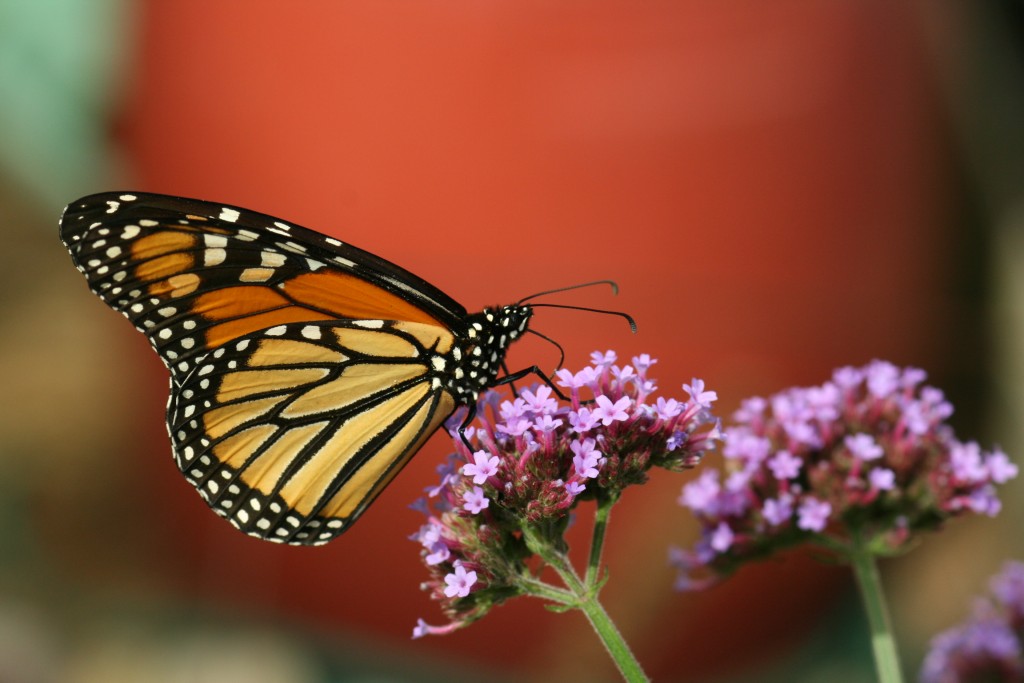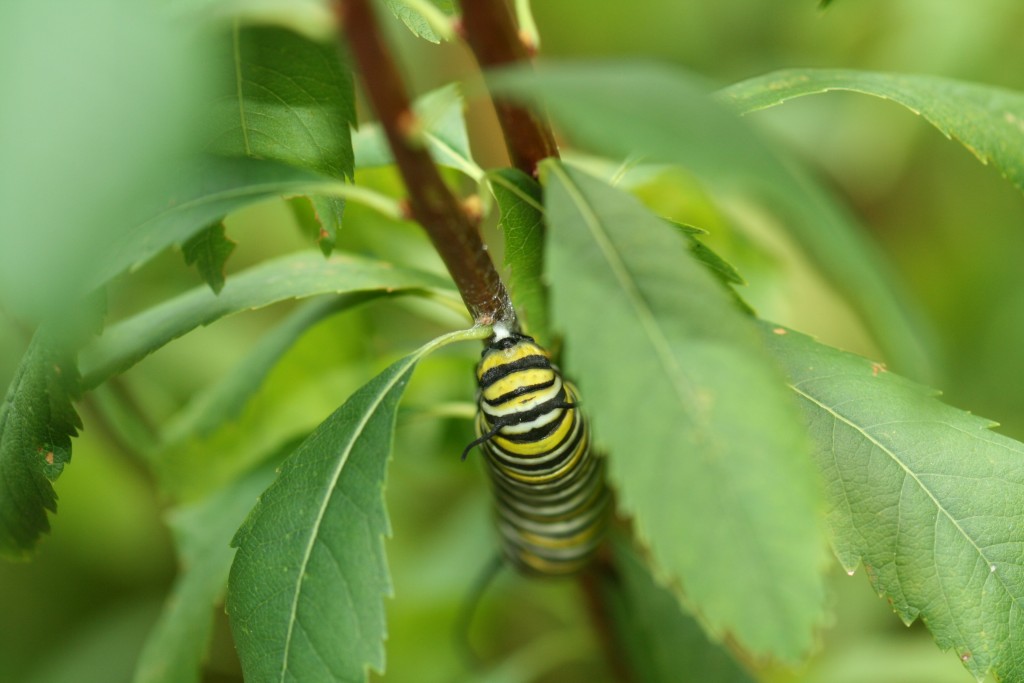The South Jersey butterflyers who attended this month’s NABA conference in Chattanooga, TN, came back with happy tales of Dianas and other memorable sightings — and also a sad update of the monarch’s situation. Experts at the meeting painted a very grim picture of the future of North America’s most celebrated butterfly. In addition to the habitat loss in their very limited wintering site in the Mexican highlands, monarchs face a frightening mix of other problems, including neonicotinoid pesticides.
The name is hard to spell or to pronounce, but this group of pesticides has become extremely widespread in recent decades — used by both farmers and gardeners across the US.
Neonicotinoids are absorbed by the plants and retained in the plants’ leaves, nectar, and pollen. That means monarchs and other insects can be poisoned when they feed on the leaves as caterpillars or as adults when they stop to take in nectar.
Neonicotinoids In Your Garden_Wings Fall, 2012
According to the Xerces Society, “Neonicotinoids can persist in soil for months or years after a single application. Measurable amounts of residues were found in woody plants up to six years after application… Products approved for homeowners to use in gardens, lawns, and on ornamental trees have manufacturer-recommended application rates up to 120 times higher than rates approved for agricultural crops.”
Go here for more information and for a long list of the home and garden products containing neonicotinoids:
The Xerces Society on Neonicotinoids
The excellent website of Monarch Joint Venture, “a partnership of federal and state agencies, non-governmental organizations, and academic programs that are working together to support and coordinate efforts to protect the monarch migration across the lower 48 United States,” has more information about these pesticides (as well as lots more about monarchs).
Monarch Joint Venture on Neonicotinoids
Can we do anything to help in southern NJ?
Yes!
The state is currently considering action on these pesticides, and Jean Riling of the Southeast Chapter of the Native Plant Society of New Jersey has compiled a very useful guide about how you can contact your representatives to urge them to action.
The first two pages explain how to know and reach your state representative on any issue; the second two pages list four current legislative initiatives of importance to anyone interested in our state’s native plant and insect life.
All four laws would have good consequences for our butterflies, but you may be especially interested in the fourth bill listed, AS1373, which would prohibit the use, sale, and distribution of neonicotinoid pesticides in the state.
Legislation June 2014 Four Worthy Bills
If you can, please contact your representative to express your views.
jc



Another recommendation from the presentation was not to purchase tropical milkweed plants (ok to grow your own from seed–probably?) as most come from Florida nurseries where many Monarchs do not migrate and are heavily infected. Also was pointed out the migrating Monarchs ward off the disease better, or the process of migration makes them less susceptible to it. And lastly we shouldn’t buy monarchs from commercial operations (again from FL or other points south)–this probably applies more to schools.